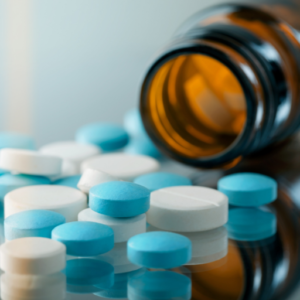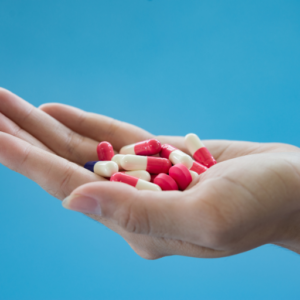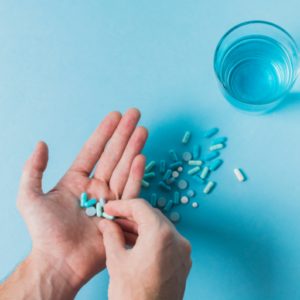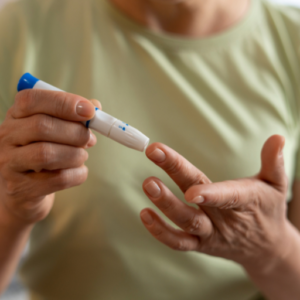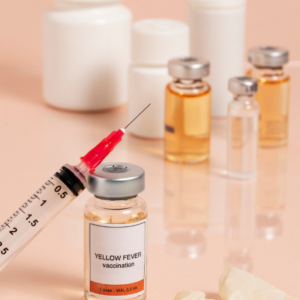Relinquish-m
| Package | Per tablet | Savings | Price |
|---|---|---|---|
| 120 tablets | $0.39 | $15.52 | $62.52 $47 |
| 100 tablets | $0.41 | $11.1 | $52.1 $41 |
| 80 tablets | $0.41 | $8.68 | $41.68 $33 |
| 60 tablets | $0.43 | $5.26 | $31.26 $26 |
| 40 tablets | $0.48 | $1.84 | $20.84 $19 |
| 20 tablets | $0.5 | – | $10.42 |
What is this medicine?
RELINQUISH‑M combines Levosulpiride 25 mg (a prokinetic and antipsychotic agent) and Domperidone 10 mg (a gastrointestinal motility agent and antiemetic). This medicine is used to treat symptoms like nausea, vomiting, bloating, indigestion, abdominal discomfort, and delayed gastric emptying (gastroparesis). It may also help with general digestive discomfort and dyspepsia.
What should I tell my health care provider before I take this medicine?
They need to know if you have any of these conditions:
-
Heart problems (arrhythmias, congestive heart failure)
-
Low magnesium or potassium levels
-
Prolactinoma or high prolactin levels
-
Parkinson’s disease or other movement disorders
-
Kidney or liver disease
-
Gastrointestinal blockage, bleeding, or perforation
-
Galactorrhea (milk production not related to nursing)
-
History of depression or mood disorders
-
An unusual or allergic reaction to levosulpiride, domperidone, or similar drugs
-
Pregnant or trying to get pregnant
-
Breast‑feeding
How should I use this medicine?
Take this medicine by mouth, as a tablet, with a glass of water, ideally 15–30 minutes before meals. Follow your doctor’s instructions — usually 1 tablet, 2–3 times daily.
-
Do not take more often than directed.
-
Do not stop taking it suddenly without your doctor’s advice.
Overdosage:
If you think you’ve taken too much, contact a poison control center or emergency services immediately.
What if I miss a dose?
If you forget a dose, take it as soon as you remember — unless it’s almost time for your next dose.
Do not double up or take extra doses to catch up.
What may interact with this medicine?
-
Other medications that prolong the QT interval (e.g., certain antipsychotics, macrolide antibiotics, quinolones)
-
Antidepressants
-
Blood pressure medications
-
Anticholinergic drugs (may reduce effectiveness)
-
Antacids or PPIs (magnesium-containing antacids may increase risk of arrhythmias)
-
Medications that affect prolactin or dopamine pathways
This list may not be exhaustive. Let your doctor know all medicines, supplements, and herbs you’re taking, and tell them if you smoke, drink alcohol, or use recreational drugs.
What should I watch for while using this medicine?
-
Watch for signs of abnormal heart rhythm (e.g., fast/irregular heartbeat, dizziness, fainting).
-
Be alert for extrapyramidal symptoms (restlessness, tremors, stiffness, involuntary movements).
-
Watch for signs of increased prolactin: breast pain, milk production, irregular periods.
-
If symptoms worsen or persist, seek medical advice.
-
Do not drive or operate heavy machinery until you know how this medication affects you.
What side effects may I notice from this medicine?
Report these to your doctor urgently:
-
Irregular heartbeat, chest pain, fainting
-
Extrapyramidal symptoms (involuntary muscle movements)
-
Signs of high prolactin: breast enlargement, milk discharge, menstrual irregularities
-
Allergic reactions: rash, swelling, trouble breathing
-
Severe abdominal pain or gastrointestinal bleeding
-
Significant mood or mental changes (e.g., depression, agitation)
Generally mild side effects (check with your doctor if they persist or bother you):
-
Dry mouth
-
Mild diarrhea or constipation
-
Dizziness or drowsiness
-
Headache
-
Mild breast tenderness or fullness
This list may not include all possible side effects.
Where should I keep my medicine?
-
Keep out of the reach of children.
-
Store at room temperature, between 20–25 °C (68–77 °F).
-
Protect from light and moisture—do not keep in the bathroom.
-
Do not use after the expiration date.
-
Dispose of unused medicine properly per local regulations—do not flush it down the toilet.




